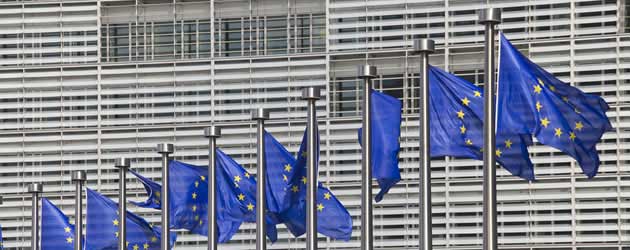
The Pound to Euro exchange rate (GBP/EUR) slid by around -0.75 cents to 1.1725 yesterday as speculative investors reacted to the Bank of Japan’s expansive stimulus programme by selling Japanese government paper and purchasing Eurozone sovereign bonds.
The Bank of Japan recently announced that it is planning to flood the Japanese bond market with 7 trillion Yen a month for the next two years in an attempt to revive the Japanese economy from its two-decade deflationary slump. The BoJ aim to bring the headline inflation rate up to 2.0% by 2015.
The ambitious stimulus package is the world’s most intense monetary loosening effort to date. The Japanese economy is around one-third the size of the United States’, so although the monthly figure of 7 trillion Yen –approximately $75 billion Dollars – is less than the Federal Reserve’s current $85 billion a month QE3 scheme, proportionally it is much larger. BoJ Governor Haruhiko Kuroda said:
“This is an unprecedented degree of monetary easing. We took all available steps we can think of. I’m confident that all necessary measures to achieve 2.0% inflation in two years were taken today.”
The Japanese Central Banker suggested that excessive bond-buying from the BoJ would compress domestic sovereign yields, therefore making them less attractive to private investors. Kuroda said this should prompt traders to start investing in riskier assets, such as property and stocks, to help kick some life into the Japanese economy.
It is far too soon to evaluate the macroeconomic results of this endeavor, but so far it is evident that the BoJ Governor was correct about one thing at least: Japanese investors are pulling the plug on domestic sovereign debt.
Jens Nordvig of Nomura Securities said that since the BoJ’s decision “it’s evident that Japanese flow into foreign fixed income has picked up, this is a historical shift that investors are trying to position themselves for.”
The initial exodus has seen money flooding into the European debt market. Although the Eurozone is still fighting its way out of a ruinous debt crisis, Japanese investors deem the currency bloc’s huge market size and relative stability as a plus point. The 10-year bond yields of France, Austria, the Netherlands, and Belgium have all fallen to record lows since the announcement.
Furthermore, the crisis-hit countries of Spain and Italy have also seen their borrowing costs decline: the benchmark Italian 10-year yield dropped 11 basis points to 4.30%, its lowest level since the failed general election left the country in political gridlock, and the Spanish equivalent fell 8 basis points to a yearly low of 4.70%.
With Japanese investors seeking higher profit margins, the outpour of funds has seen the Pound to Euro exchange rate (GBP/EUR) decline as traders opt for assets denominated in the single currency rather than in Sterling. In addition to its -0.75 cent descent against the Euro, Sterling shed around -2.2 cents against the New Zealand Dollar (GBP/NZD), -1.5 cents against the Australian Dollar (GBP/AUD), -0.9 cents against the Canadian Dollar (GBP/CAD), and -0.85 cents against the US Dollar (GBP/USD).
Against the Japanese Yen, the primary victim of the BoJ’s stimulus plan, the Pound gained a solid 2.3 cents.

Comments are closed.